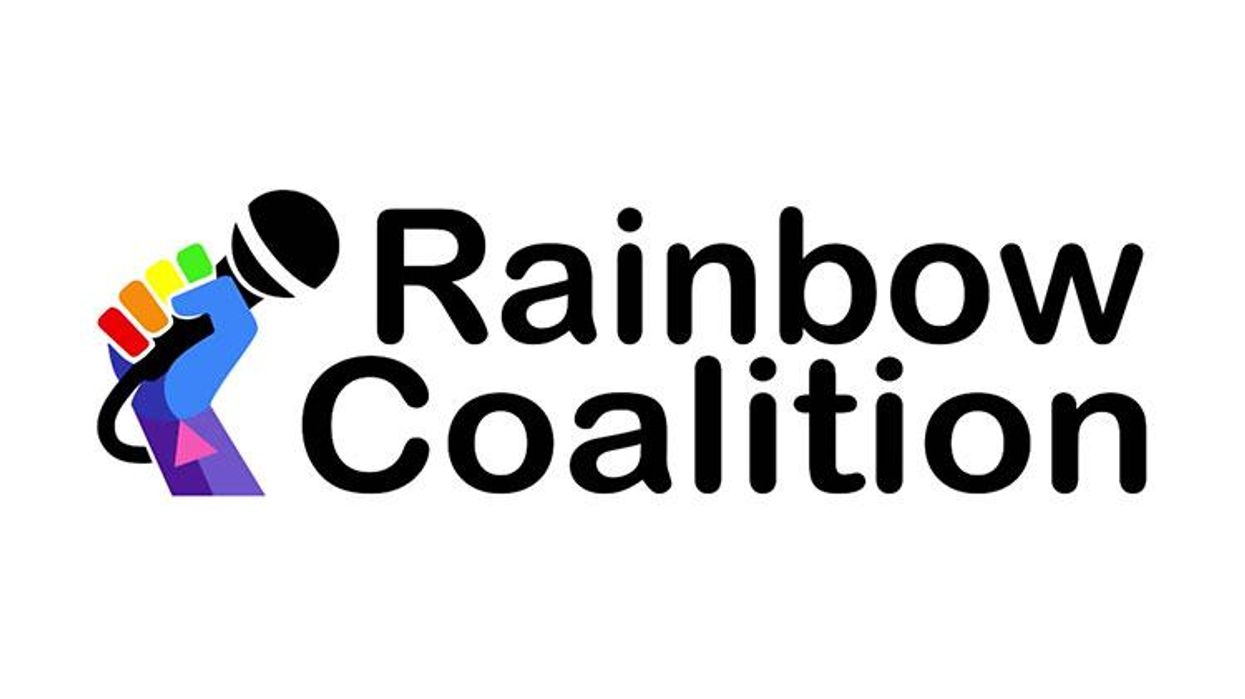Business
Eight YouTube Creators Sue Google for Bias Against LGBTQ Content

They accuse YouTube and Google of discrimination, fraud, and restricting speech.
August 14 2019 9:18 PM EST
By continuing to use our site, you agree to our Privacy Policy and Terms of Use.

They accuse YouTube and Google of discrimination, fraud, and restricting speech.
Eight queer YouTube creators filed a class action lawsuit against Google/YouTube Wednesday to "stop discriminatory and unlawful content-based regulation, restraint, monetization, false advertising, and anti-competitive distribution of LGBTQ+ speech and video content."
These creators partnered to release a video explaining their lawsuit, calling themselves the "Rainbow Coalition."
The plaintiffs are Bria Kam and Chrissy Chambers, a singing lesbian duo who run the YouTube channel BriaAndChrissy; Chase Ross, a trans activist who educates on trans issues and runs the YouTube channel uppercaseCHASE1; Lindsay Amer, a queer educator who makes kid-friendly educational videos like "T Is For TRANS!" and "What Does GAY Mean?!?" on their YouTube channel QueerKidStuff; Amp Somers, a kinky sex educator and anti-censorship activist who makes playful sex education videos on his channel Watts the Safeword; Celso Dulay and Chris Knight, hosts of GlitterBombTV.com, which covers LGBTQ news and entertainment and has a YouTube channel; and Cameron Stiehl, a cohost of GNews!, a channel on GlitterBombTV.com. The suit was filed in federal court in San Jose, Calif.
This isn't the first time YouTube has come under fire for censoring and attacking queer content. YouTube and Google, its parent company, publicly admitted that they were censoring queer content using their "Restricted Mode" system in 2017. After public outcry, YouTube claimed to have changed its policy and its algorithm.
But according to the plaintiffs, that's not what happened.
"Our LGBTQ+ content is getting demonetized, restricted, and not sent out to viewers, which has highly affected our ability to reach the community we strongly want to help," Chambers says in the video explaining the lawsuit.
Demonetization is the biggest problem, says Somers, because there are no explicit guidelines or transparency about what makes content deemed "not advertiser-friendly."
YouTube creators typically make money one of two ways -- advertising and sponsorship. Ads (those short videos that run before the main video) are, for smaller creators like the plaintiffs, often chosen at random (or by YouTube's own internal algorithm). It is rare for content creators to choose which brands advertise on their videos, Somers says.
"When YouTube -- either through a person moderator or through YouTube's own algorithm -- flags your content as 'not advertiser-friendly,' you lose both advertising revenue and sponsorship," Somers tells The Advocate. When content is flagged, he says, those creators don't get any revenue from ads, and sponsors are unlikely to support content that is deemed "not advertiser-friendly." Both ways to generate revenue are cut off.
The creators say YouTube blocks their access to advertisers -- or reduces it enough to make the process of creating videos no longer profitable. This can have a significant impact on the livelihood of LGBTQ content creators and can restrict their ability to reach queer audiences -- particularly vulnerable LGBTQ youth.
Somers says that reaching queer young people is the most important part of what the Rainbow Coalition does -- and that this censorship harms the entire community.
"I grew up Catholic, which taught me abstinence-only education and led to unrealistic expectations and misinformation, which caused me to unknowingly put myself in harmful sexual experiences," he says. He doesn't want that for others.
The eight plaintiffs accuse Google of breaching consumer contract rights -- rights they assert include viewpoint-neutral regulations.
Last year, the producers of GlitterBombTV.com had their holiday special of GNews!, their gay news and entertainment channel, blocked for promotion by Google Ads. Following six days of calls with support staff, the producers were told by a Google Ads call center manager in a recorded call that their video had been deemed "shocking content" because of its subject matter.
The call center manager stated on the phone that they would not allow promotion of the episode because it was company policy to ban advertising because of "the gay thing."
YouTube was bought by Google for $1.65 billion in 2005. According to Sandvine, which tracks global internet traffic, YouTube accounted for 35 percent of all mobile web traffic this year. Most sites that track internet data place YouTube as the second highest-trafficked site in the world across all categories (Google.com is the first).
The lawsuit comes amid a dangerous increase in LGBTQ censorship in recent years -- while anti-LGBTQ hate crimes have been steadily climbing for three years.
In 2017, the Federal Communications Commission voted along party lines to scrap Obama-era net neutrality regulations -- which many LGBTQ activists warned would create situations just like this.
The official complaint states that Google/YouTube operates as "the largest for-profit forum dedicated to free speech and expression in the world" and estimates that Google reaps more than $25 billion in annual revenues "solely by regulating, distributing, and monetizing the free speech and expression of the estimated 2.3 billion people who use YouTube."
Company officials deny that there is a crackdown on LGBTQ content. "Our policies have no notion of sexual orientation or gender identity and our systems do not restrict or demonetize videos based on these factors or the inclusion of terms like 'gay' or 'transgender,'" YouTube spokesman Alex Joseph told The Washington Post.
Charlie Kirk DID say stoning gay people was the 'perfect law' — and these other heinous quotes